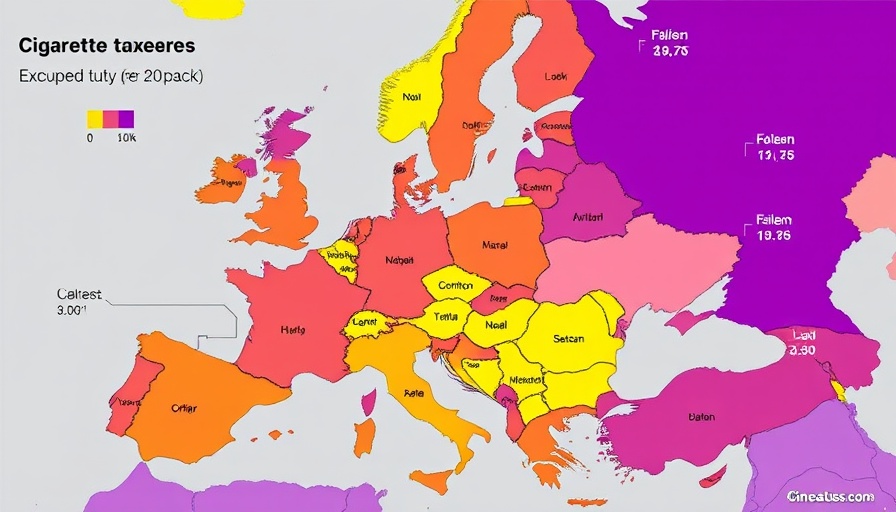
Understanding the Massive Cost of Tax Complexity in the US
The intricate web of the federal tax code has become a significant burden on the U.S. economy, costing an astounding $536 billion annually, according to recent estimates. The complexities of tax compliance not only consume billions of hours each year but also drain productivity and resources that could be better spent.
Why Tax Simplification is Critical for Businesses
For CPAs and small to medium-sized businesses, navigating through the maze of tax laws is akin to wading through a swamp. The One Big Beautiful Bill Act (OBBBA) may have offered some changes, but it has largely left the overall structure intact, maintaining a system that demands rigorous compliance and time-intensive procedures.
This complexity is not just an inconvenience; it has real implications for economic growth. According to findings by economists at the Organisation for Economic Co-operation and Development, income taxes—both individual and corporate—are the most detrimental to growth. As businesses struggle to comply, innovation and expansion efforts are often sidelined.
Compliance Costs: A Drain on Productivity
In 2024, Americans filed a staggering 266.6 million tax returns. The sheer scale of this task highlights the burden faced by both taxpayers and the Internal Revenue Service (IRS). With over 65% of these filings being individual and corporate income tax returns, the calculation of compliance costs presents a dire picture. Americans are projected to spend nearly 7.1 billion hours in 2025 alone to meet these tax obligations, equivalent to 3.4 million full-time workers.
When we convert this time into economic costs, it reveals a staggering $388 billion in lost productivity. Adding to this, taxpayers are projected to shell out approximately $148 billion annually in direct out-of-pocket expenses just to comply with the tax code. Together, these calculations show that the tax compliance process ties up not just time, but also critical financial resources that could otherwise be invested back into the economy.
The Historical Context of Tax Compliance Burden
Historically, the U.S. tax code has evolved in complexity over the decades. The Paperwork Reduction Act of 1980 aimed to streamline and simplify tax compliance, but the reality has become increasingly burdensome. The IRS has invested decades in methods to estimate how many hours and dollars taxpayers expend in compliance. Despite these efforts, taxpayers continue to find themselves bogged down in a labyrinth of forms and procedures.
Future Predictions: Will Changes Emerge?
As scrutiny over tax complexity increases, some predict a shift toward simplification in tax policy. Political leaders and policymakers are beginning to recognize that simplifying the tax code could unlock economic growth and productivity. The costs associated with compliance can no longer be overlooked, and it may take concerted efforts from both the government and businesses to advocate for a revised tax framework.
Your Business: What Can You Do?
For CPAs and small to medium-sized businesses, understanding these complex dynamics is crucial. Businesses can advocate for clearer guidelines and simplified tax structures, while also exploring strategies to minimize their compliance burden. Staying informed on the evolving laws and seeking professional advice can help navigate the complexities of the tax landscape.
The Cost of Ignoring Tax Complexity
Ignoring the implications of tax complexity can have dire consequences for financial health. Companies that underestimate compliance costs might find themselves grappling with unforeseen financial setbacks. By recognizing the true economic cost of tax compliance, businesses can make informed decisions and allocate their resources more effectively.
In this light, it is imperative for businesses to educate themselves about the compliance environment and leverage available tools and technologies that could mitigate some of these burdens.
As we contemplate the future of the U.S. tax structure, it is essential for all stakeholders – from policymakers to business owners – to prioritize initiatives that seek to simplify tax compliance, ultimately saving time, money, and resources for individuals and businesses alike.
To stay ahead of these ongoing changes in taxation, CPAs and small to medium-sized businesses need to remain proactive. Advocacy for tax simplification can be a powerful tool in building a more efficient economic landscape.
 Add Row
Add Row  Add
Add 




Write A Comment